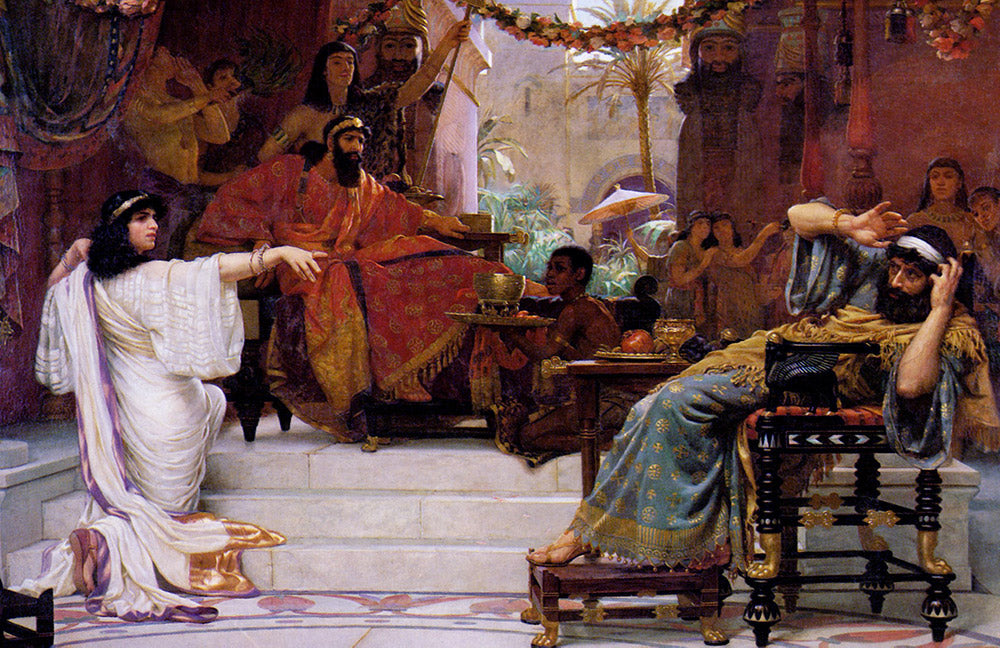Photo: Ernest Normand, Public domain, via Wikimedia Commons
We have finally arrived at the Hebrew month of Adar. In the Talmud it describes this month as the month in which we “increase in joy.” Though in modern times we celebrate this month as a month of joy and gladness, this was not always the case. In the year 365 BCE, a king by the name of Ahasuerus came to rule over the entire Persian Empire. This vast empire, composed of 127 provinces, was a melting pot of different cultures, peoples and languages. King Ahasuerus threw a royal banquet at his coronation and asked for his Queen to show herself off to his guests. The queen refused and was summarily removed while a replacement was sought in her stead. Esther (a Jewess by the Hebrew name Hadassah) became king Ahasuerus’s choice for the new Queen.
Though Esther couldn’t have known at the time, her position in the King’s court was for greater purposes. Haman (a descendant of Agag the Amalekite), one of the king’s chief advisors despised the Jews with vitriolic hatred. He slyly told the king, “There is a certain people scattered and dispersed among the people in all the provinces of your kingdom; their laws are different from all other people’s, and they do not keep the king’s laws…let a decree be written that they be destroyed.” Of course, whom else could Haman be referring to other than the Jewish nation? A “certain people” with “different laws?” This could only be the people of Israel.
Haman threw lots to determine the date for the destruction of the Jewish people. Queen Esther however exposed the evil plot of Haman, who ended up hanged for his scheme, and on the day that was supposed to be the destruction of the Jews, instead, “The Jews gathered together [and] overpowered those who hated them.” This day, which was meant to be a day of tragedy, was miraculously “turned from sorrow to joy… from mourning to a holiday.” Today we refer to this festival as the holiday of Purim. The word “purim” is the Hebrew word for the term “lots.” Lots were cast against the Jewish people, but God will never forsake “Jacob… the lot of His inheritance.”
Throughout the centuries nation after nation has risen against God’s chosen people, in the end, God’s people remain strong while the opposition has consistently been vanquished. In the book of Esther, God’s name is never mentioned. Why would there be a book in the Bible that has 0 references to God? Esther is about God being revealed through the various “coincidences” of life. This book finds the revealing of the hidden as a central topic, with God always, unnamed, working behind the scenes according to His Divine plan. This can give us confidence looking towards the future that God will come through for us in our times of desperation as well.
As it says in the book of Esther, “The Jews had light and gladness, joy and honor.” Therefore we all say, “So may it be for us.” In this season of Purim I want to end with the words of the Prophet Daniel, “but the people who know their God shall be strong, and carry out great exploits.” May we all know God and accomplish His work in our time. Chag Sameach! Happy Holiday!





Rose Voldseth
March 16, 2025
Love all the products that I have bought; so far I have bought a cup, coffee, olive oil, tea, and some other stuff, I really appreciate the quality. Will continue to buy from here.